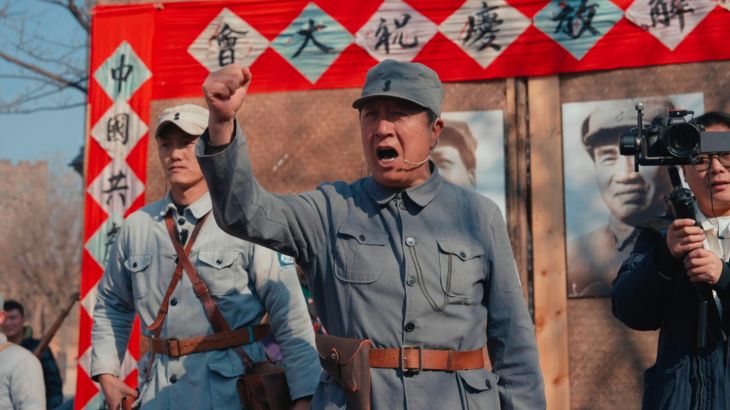
News
September 05, 2025
Unhealed wounds: Anti-Japanese sentiment in post-war China
101 East investigates why Chinese nationalists have committed violent, sometimes deadly acts against Japanese civilians.
**Unhealed wounds: Anti-Japanese sentiment in post-war China**
The scars of war run deep, and for many in China, the wounds inflicted during the Second Sino-Japanese War remain unhealed, fueling a persistent anti-Japanese sentiment that, in some cases, has erupted into violence. A recent investigative report by 101 East delves into the complex reasons behind this enduring animosity and the disturbing trend of Chinese nationalists committing violent acts against Japanese civilians on Chinese soil.
The report highlights that while diplomatic and economic ties between China and Japan have grown significantly in recent decades, a deep-seated resentment persists, particularly among certain segments of the Chinese population. This resentment stems from the brutal atrocities committed by the Imperial Japanese Army during its occupation of China in the 1930s and 40s. The Nanjing Massacre, Unit 731, and countless other acts of violence and exploitation are etched into the collective memory of many Chinese citizens, passed down through generations.
101 East’s investigation reveals that this historical trauma, combined with nationalist narratives promoted in some circles, contributes to a volatile environment where anti-Japanese sentiment can quickly escalate. The report examines instances where Japanese individuals, including tourists and businesspeople, have been targeted with verbal abuse, physical assaults, and even deadly attacks.
The report also points to the role of online platforms in amplifying and spreading anti-Japanese rhetoric. Social media and online forums can become echo chambers where nationalist sentiments are reinforced, and historical grievances are exploited to incite hatred and violence. The anonymity offered by the internet can embolden individuals to express extreme views and engage in harmful behavior.
Understanding the root causes of this anti-Japanese sentiment is crucial for fostering reconciliation and preventing future acts of violence. The 101 East report underscores the need for open dialogue, honest historical reflection, and a commitment to promoting mutual understanding between the people of China and Japan. It serves as a stark reminder that the legacy of war can have lasting consequences and that addressing historical grievances is essential for building a more peaceful future. The investigation emphasizes that while economic cooperation and diplomatic efforts are important, they are insufficient to fully address the deeply ingrained emotions and historical narratives that continue to fuel anti-Japanese sentiment in certain parts of Chinese society.
The scars of war run deep, and for many in China, the wounds inflicted during the Second Sino-Japanese War remain unhealed, fueling a persistent anti-Japanese sentiment that, in some cases, has erupted into violence. A recent investigative report by 101 East delves into the complex reasons behind this enduring animosity and the disturbing trend of Chinese nationalists committing violent acts against Japanese civilians on Chinese soil.
The report highlights that while diplomatic and economic ties between China and Japan have grown significantly in recent decades, a deep-seated resentment persists, particularly among certain segments of the Chinese population. This resentment stems from the brutal atrocities committed by the Imperial Japanese Army during its occupation of China in the 1930s and 40s. The Nanjing Massacre, Unit 731, and countless other acts of violence and exploitation are etched into the collective memory of many Chinese citizens, passed down through generations.
101 East’s investigation reveals that this historical trauma, combined with nationalist narratives promoted in some circles, contributes to a volatile environment where anti-Japanese sentiment can quickly escalate. The report examines instances where Japanese individuals, including tourists and businesspeople, have been targeted with verbal abuse, physical assaults, and even deadly attacks.
The report also points to the role of online platforms in amplifying and spreading anti-Japanese rhetoric. Social media and online forums can become echo chambers where nationalist sentiments are reinforced, and historical grievances are exploited to incite hatred and violence. The anonymity offered by the internet can embolden individuals to express extreme views and engage in harmful behavior.
Understanding the root causes of this anti-Japanese sentiment is crucial for fostering reconciliation and preventing future acts of violence. The 101 East report underscores the need for open dialogue, honest historical reflection, and a commitment to promoting mutual understanding between the people of China and Japan. It serves as a stark reminder that the legacy of war can have lasting consequences and that addressing historical grievances is essential for building a more peaceful future. The investigation emphasizes that while economic cooperation and diplomatic efforts are important, they are insufficient to fully address the deeply ingrained emotions and historical narratives that continue to fuel anti-Japanese sentiment in certain parts of Chinese society.
Category:
Politics